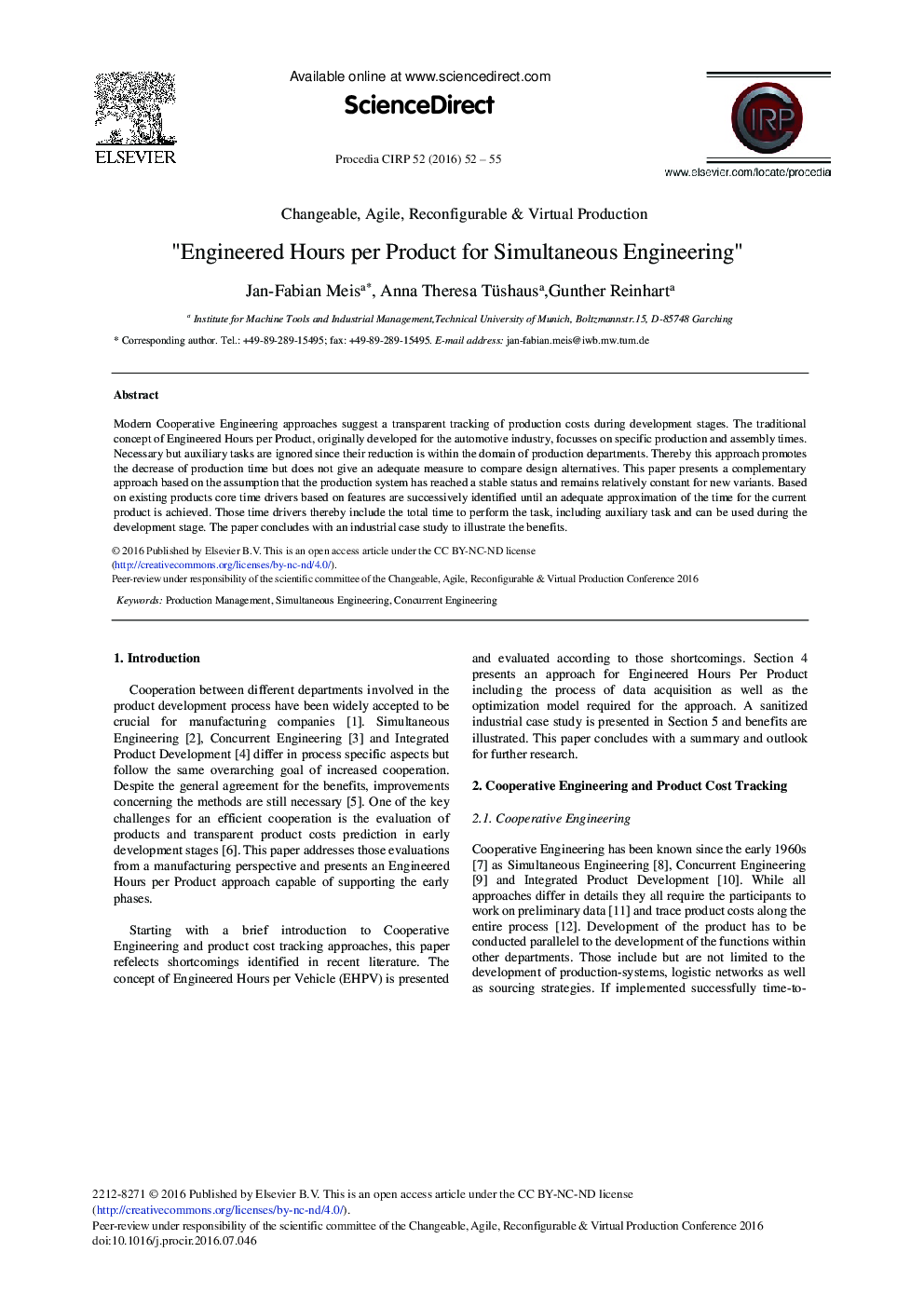| Article ID | Journal | Published Year | Pages | File Type |
|---|---|---|---|---|
| 1698047 | Procedia CIRP | 2016 | 4 Pages |
Modern Cooperative Engineering approaches suggest a transparent tracking of production costs during development stages. The traditional concept of Engineered Hours per Product, originally developed for the automotive industry, focusses on specific production and assembly times. Necessary but auxiliary tasks are ignored since their reduction is within the domain of production departments. Thereby this approach promotes the decrease of production time but does not give an adequate measure to compare design alternatives. This paper presents a complementary approach based on the assumption that the production system has reached a stable status and remains relatively constant for new variants. Based on existing products core time drivers based on features are successively identified until an adequate approximation of the time for the current product is achieved. Those time drivers thereby include the total time to perform the task, including auxiliary task and can be used during the development stage. The paper concludes with an industrial case study to illustrate the benefits.
